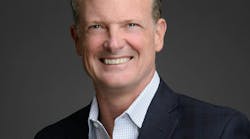Earlier this week, Vanderbilt Industries announced that it has established a new international headquarters in Wiesbaden, Germany. The company initially announced plans to open the facility following its acquisition of Siemens Security Products business, which is being renamed Vanderbilt International, last October.
According to Vanderbilt International Managing Director Joseph Grillo, one of the main reasons behind the opening of the new international headquarters, which is housed inside a 3,466-square foot modern office space, is to help establish the company’s brand in the European market.
“The biggest challenge to this acquisition is losing the Siemens brand and having to build new brand value around the Vanderbilt name. That brand is not very old either because we instituted it around 2012 when we bought the carved out access control business of Ingersoll Rand,” explained Grillo. “Establishing a headquarters with a big sign and having that name up there sets the tone for that.”
By having a physical presence in Europe, Grillo said that they will also be able to reach out into other nearby markets and start establishing a presence there as well.
“That is a major objective for the business,” added Grillo. “Because Siemens had had this business on the market, which is fairly well-known, for a few years; this gives us the opportunity to launch other international expansion in places such as Eastern Europe and South America with products and software that is multi-lingual in Portuguese and Spanish. Those were efforts that just were not done within Siemens for a business that was for sale, but it is absolutely a major objective for us.”
Additionally, Grillo said that the new international headquarters will provide the company with infrastructure and support in Europe that they didn’t previously have.
“While we bought a tremendous group of assets including products, intellectual property and management, what we didn’t buy, because this was an asset deal, was infrastructure and our company did not have an infrastructure in place in Europe,” he said. “The types of functions that were being provided to this business, as often is the case with very large companies like Siemens, they were done on a global shared services basis, so IT, HR, finance, compliance, and those types of things needed to be located in a new area or organization. We’ve acquired three major product lines (from Siemens) along with product managers, R&D, warehousing, sales and distribution, sales and sales support staff in 17 different countries in Europe, but those folks need to be supported so that they can support customers.”
The reason they decided to locate the international headquarters in Wiesbaden, according to Grillo, was because it was not only near some of the Siemens employees they brought onboard with the acquisition, but also due to the fact that it is centrally located in Europe.
“Our operations are far flung around Europe, but (the new headquarters) is very close to Frankfurt, which is a major, international airport with single-flight connections to everywhere,” said Grillo. “It also establishes that this is a European business. Under Siemens, the operational headquarters of this business was in Sweden, so what we’re trying to do is say that this is a European business, not a Swedish business, so there is a bit of a message there as well.”
Grillo, who will also have an office in the facility, said there will be approximately 10 people working out of the new international headquarters.


